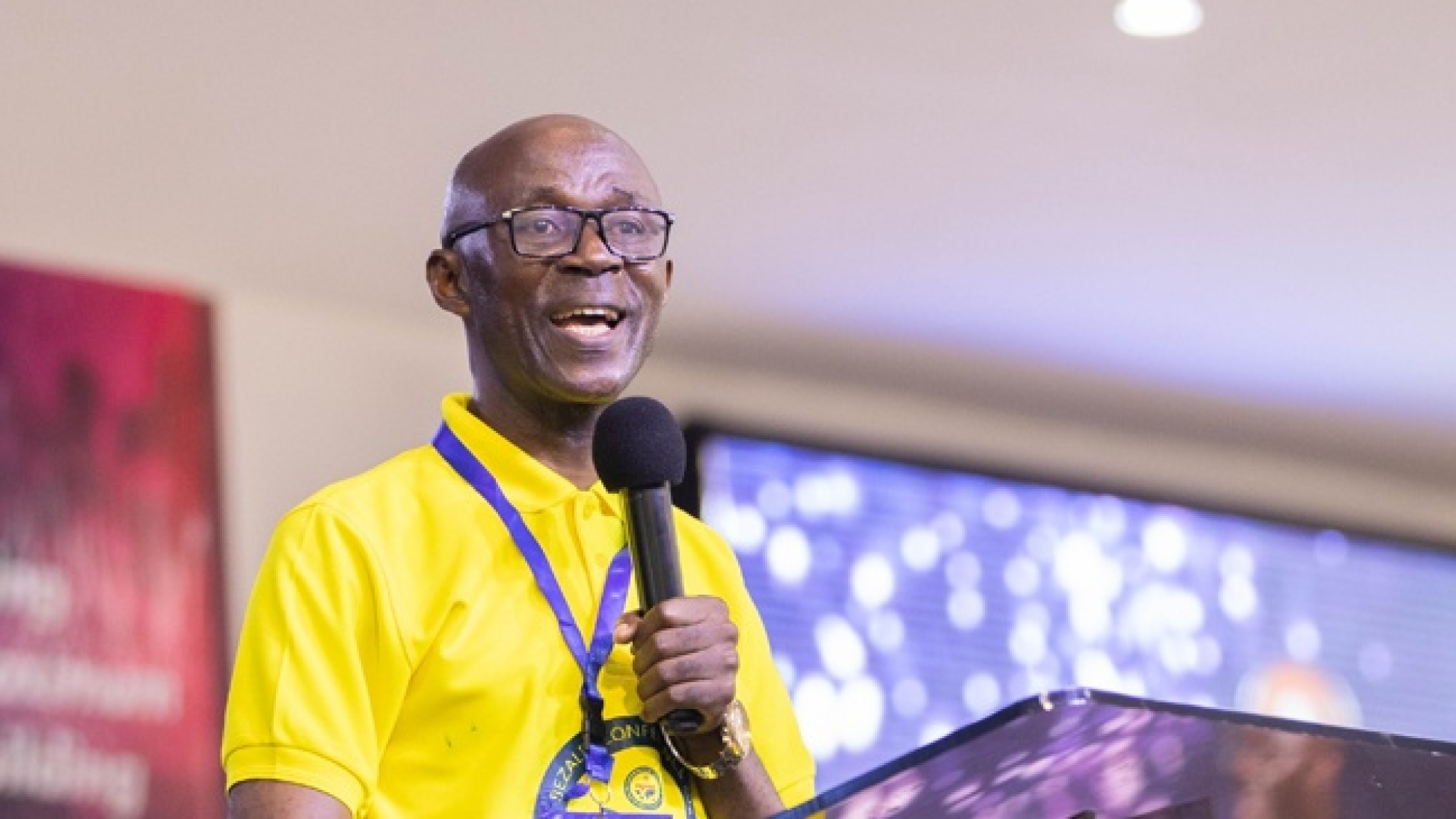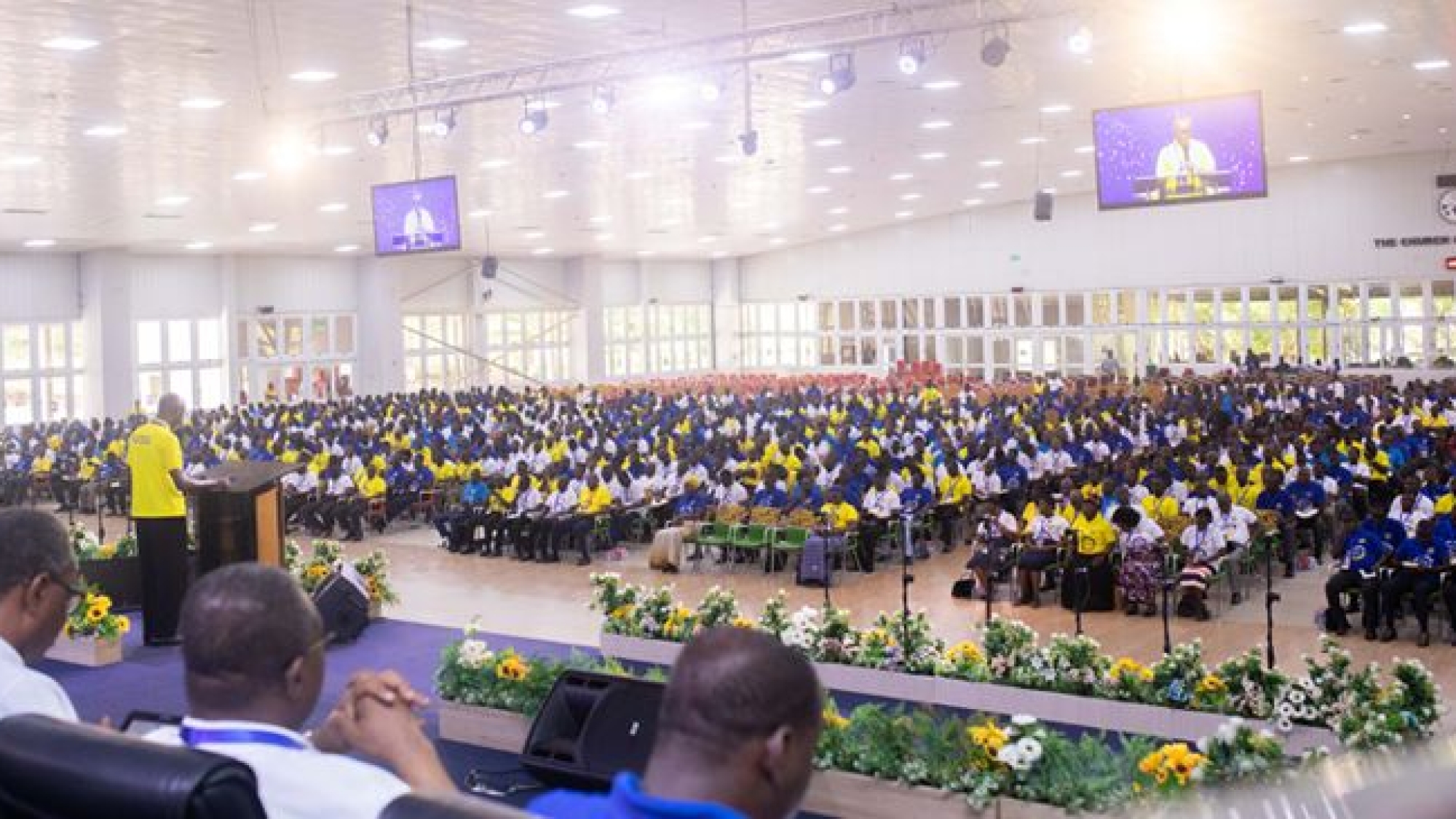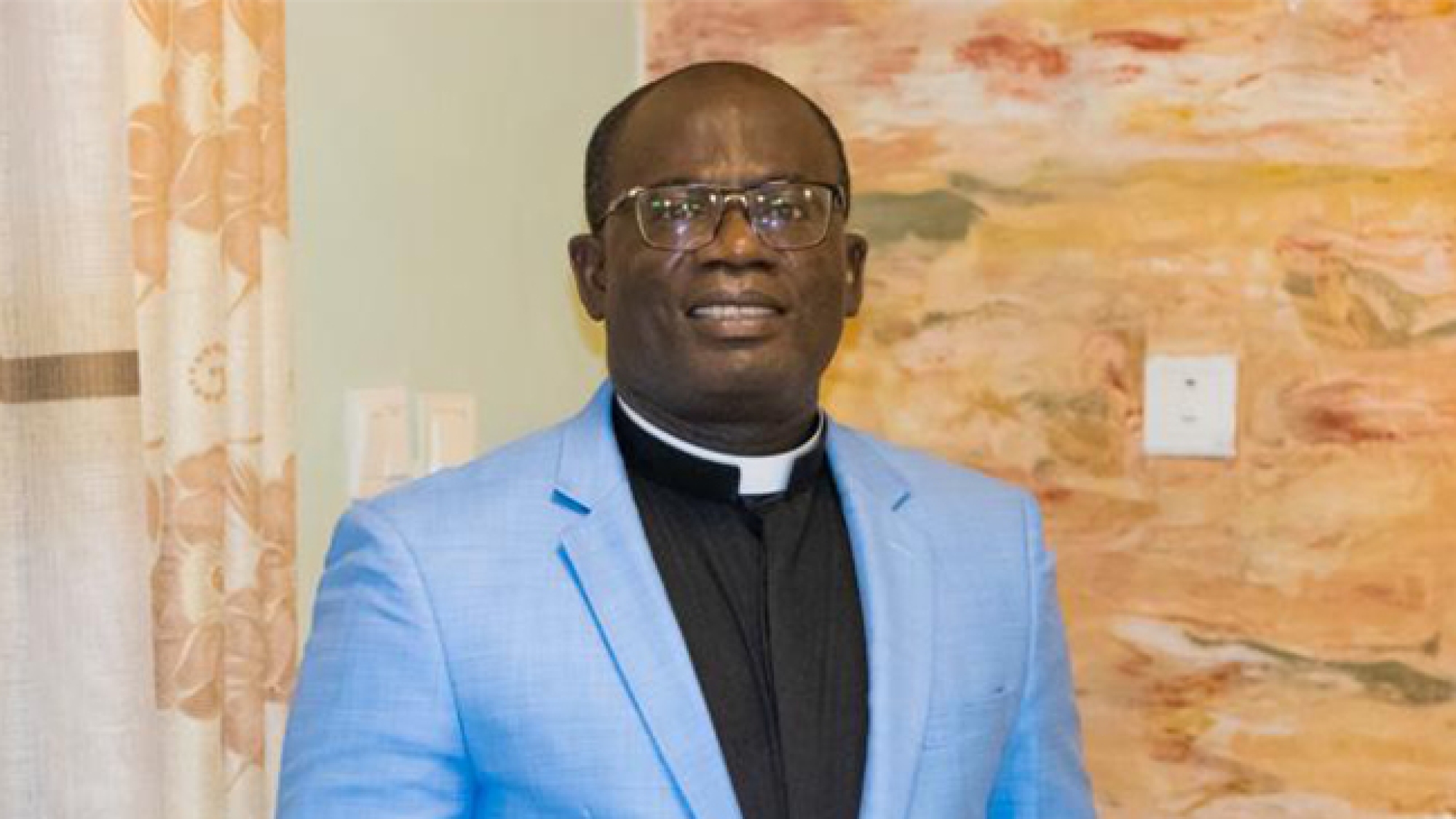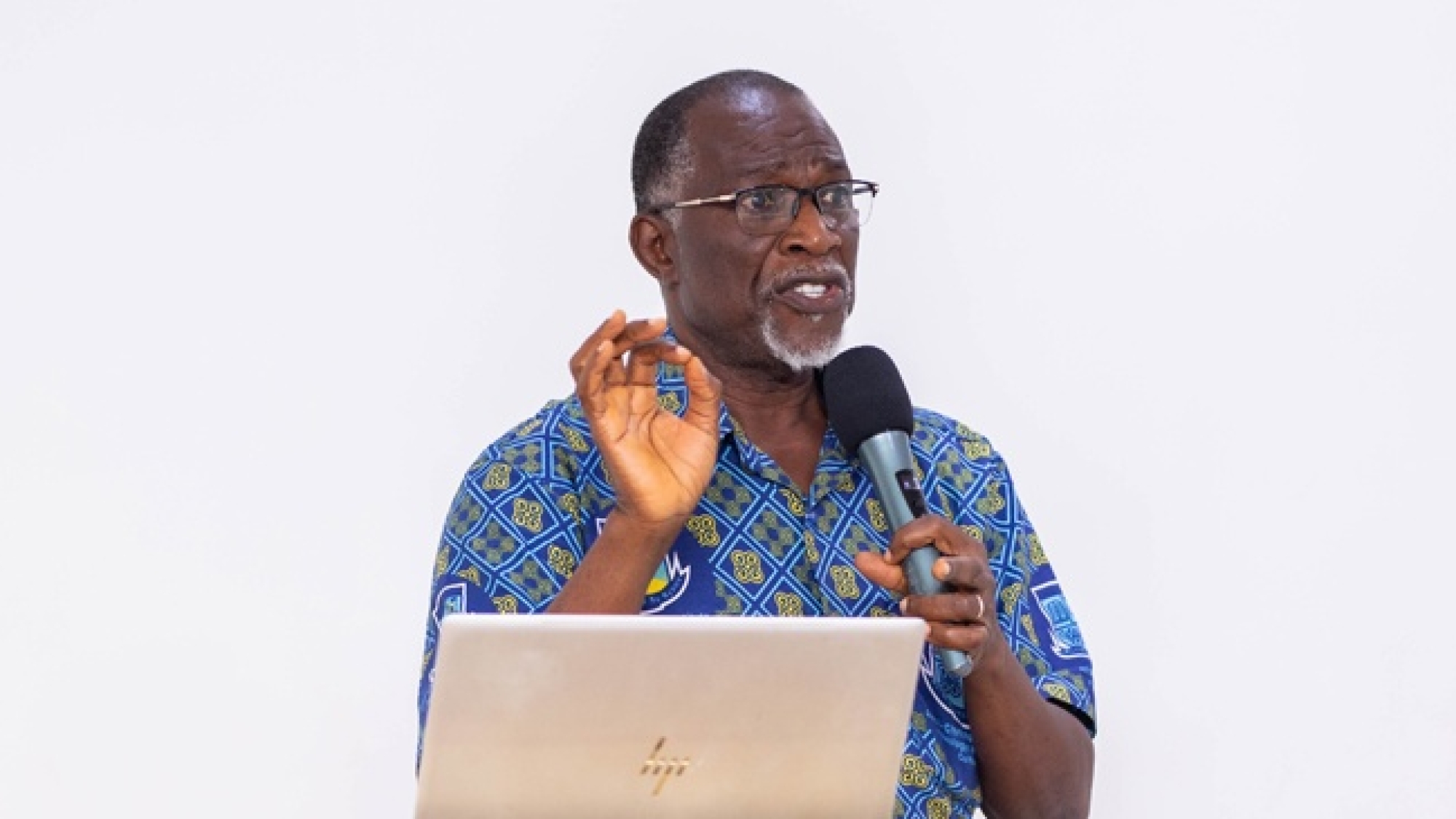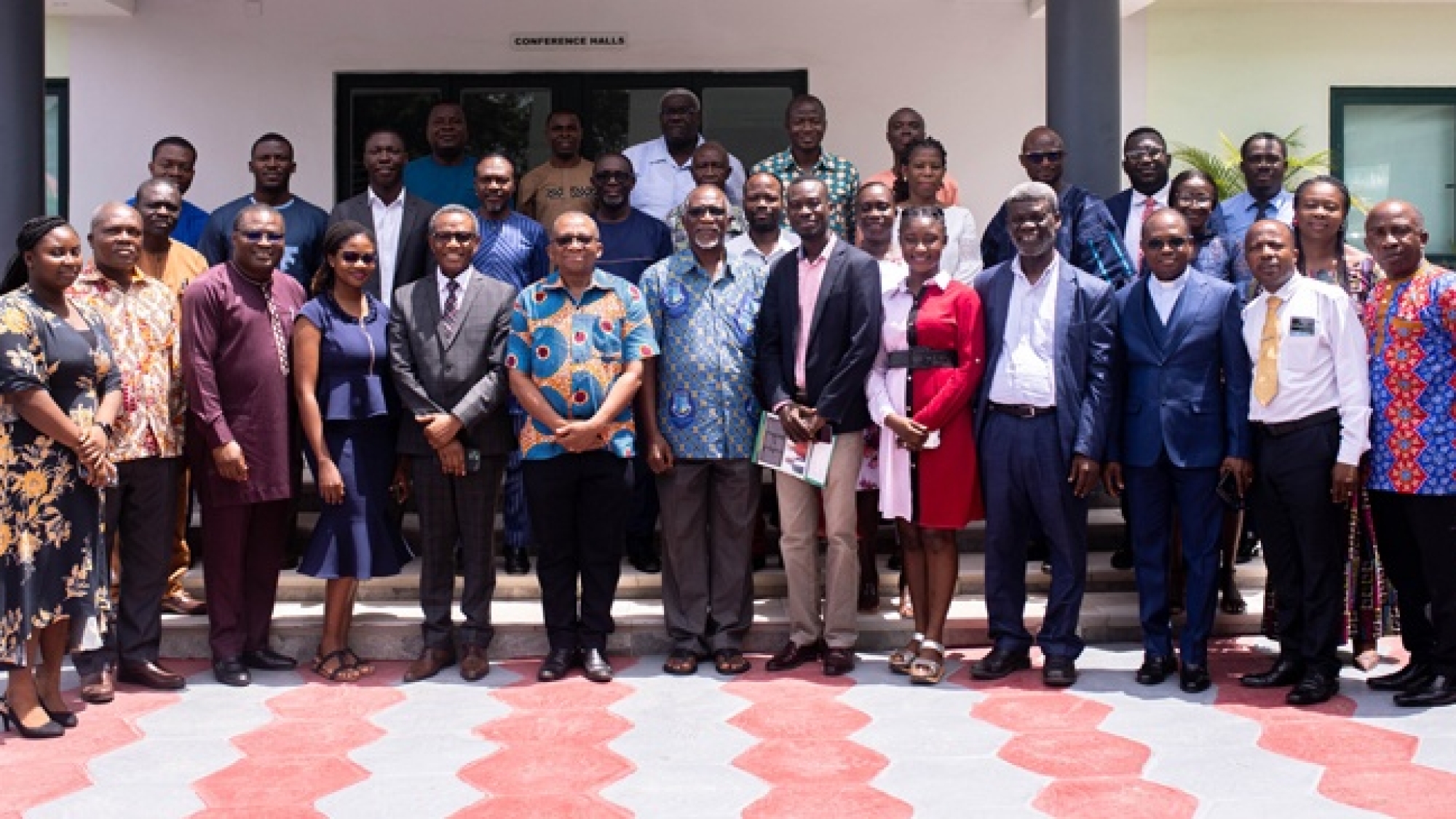- The Father’s Promise and its Fulfilment on the Day of Pentecost
In one of Jesus’ last moments with His disciples before the crucifixion, He told them about His ascension to the Father. On hearing that, they became very sad as they wondered how they were going to cope without their Master. Seeing their grief, Jesus exhorted them, saying, ‘…very truly I tell you, it is for your good that I am going away. Unless I go away, the Advocate will not come to you; but if I go, I will send Him to you’ (John 16:5-7; 14:16-17).
Before Jesus ascended to Heaven after His death and resurrection, He met again with the disciples on Mount Olives where He reminded them of the Father’s promise of baptising them with the Holy Spirit, and encouraged them to wait in Jerusalem for it (Acts 1:4-5). They returned after Christ’s ascension as they had been admonished.
In the upper room where they were staying, the disciples all joined together in constant prayers, with a heart of oneness, waiting for the promise. On the tenth day which was the day of Pentecost (a Jewish festival also known as the Feast of Weeds), while they prayed, ‘Suddenly a sound like the blowing of a violent wind came from heaven and filled the whole house where they were sitting…. All of them were filled with the Holy Spirit and began to speak in other tongues as the Spirit enabled them’ (Acts 2:1-4).
When the crowd that had gathered in Jerusalem for the feast of Pentecost heard the loud voices of the disciples, they were bewildered at their utterances, because each one heard their own language being spoken. There were some who however thought the disciples were drunk and hence made mockery of them (Acts 2:5-6, 12-13). At that instance, Peter stood with the other eleven and addressed the crowd, giving clarity to the phenomenon and referring them to the Old Testament prophecy of Joel which declared that in the last days, God would pour out His Spirit on all people; that young men and women shall prophesy and see visions, while the old dream dreams (Acts 2:17, Joel 2:28). Peter further indicated that this promise of the Father is for all – both young and old, male and female, white and black, rich and poor (cf. Acts 2:38-39). The only requirement was for them to repent of their sins, and believe in the name of Jesus for the forgiveness of their sins. This truth stands today and forever.
Jesus is now gone (in body) to heaven, but the Holy Spirit He promised to send is with us here on earth. He is here to have fellowship with us, and to help us experience victorious Christian living. To enjoy fellowship with the Spirit, it is imperative that we seek to know Him, having had an experience of Him. And, to know Him, we must seek to learn more about Him. Thus, we shall attempt to discuss His personality and deity as revealed in the Bible, and proceed to consider His service to the Christian believer and how to experience His outpouring and daily infilling.
- The Personality of the Spirit
The Holy Spirit is NOT some wind, cloud, light or smoke that floats around. It is biblically wrong to think and teach that way about the Spirit of God. He is a complete Person, like Jesus Christ. The difference, however, is that He has no bodily form as Jesus had while on earth.
It must be realised that what makes someone a person is not the human body, but the fact that that one has an intellect, emotions and a will. We find in the Bible, several characteristics of the Holy Spirit that affirm that He is a Person who can be related to or communed with. Examples include the following:
- He has a mind or an intellect that searches and reasons (1 Cor. 2:10-11, Rom. 8:27). As a Person with intellect, He can instruct as well (Neh. 9:20)
- He has emotions and can therefore be grieved (Isaiah 63:10, Ephesians 4:30).
- He has a will, and therefore decides for Himself (1 Cor. 12:11, Acts 16:6-7).
- He has the capacity to love (Romans 15:30).
- He speaks (John 16:13, Acts 8:29; 10:2, 19).
- The masculine pronoun ‘He’ is used in reference to Him throughout the Scriptures (John 15:26; 16:7-15).
The Holy Spirit is not only a Person; He is God. We find proof of this in several passages of the Bible. For example in Acts 5:1-4, we read: “But there was a man named Ananias, who with his wife Sapphira, sold some property that belonged to them. But with his wife’s agreement, he kept part of the money for himself and handed the rest over to the apostles. Peter said to him, ‘Ananias, , why did you let Satan take control of you and make you lie to the Holy Spirit by keeping part of the money you received for the property? Before you sold that property, it belonged to you; and after you sold it the money was yours. Why then did you decide to do such a thing? You have not lied to human beings – you have lied to God?’”
From the passage, we learn that a lie to the Holy Spirit is a lie to God, affirming the deity of the Spirit.
In Matthew 28:19 and 2 Corinthians 13:14, the Holy Spirit is revealed as the third Person in the Trinity or Godhead. He is third not because He is the least, but because He is the last among the Trinity to be known by us. The Father was made known first to us, then the Son, and now the Holy Spirit. The Scriptures provide several attributes of the Holy Spirit that confirm His deity. The following are some of them:
- He is omniscient, which means He knows all things – including the past, present and future. He knows what is hidden in our minds and hearts. He knows what goes on in the dark or secret places (1 Cor. 2:10-12, John 14:26; 16:13, Psalm 139:2-4, 6). The Spirit teaches us all things because He knows all things.
- He is omnipresent, which means He is everywhere at the same time (Psalm 139:5, 7-10).
- He is omnipotent, meaning He has all power and authority – in heaven, on earth and under the earth. The Holy Spirit is the power of the Godhead, and has authority over all things – human beings, angels, Satan, demons, all diseases, death, etc. As God the Father and Son have power to create and give life, so does the Holy Spirit has power to create and give life (Job 33:4, Rom. 15:18-19, John 6:23).
- He is eternal or immortal, which means He never dies. The Holy Spirit has no beginning nor end; He has been in existence prior to creation, and will forever exist. Thus, in Hebrews 9:14, He is called the Eternal Spirit.
- Understanding the Nature and Work of the Holy Spirit through His Emblems
The Emblems of the Holy Spirit are those physical or natural things used in Scripture to represent the Holy Spirit; they are only symbols or representations, and NOT what or how He actually looks like. They only help us to understand certain qualities of the Spirit. For example, if we say a person runs like a horse, it does not necessarily mean he or she is a horse. Instead, it helps us understand the speed at which he/she runs.
Briefly discussed below are five of the emblems used for the Holy Spirit.
- Dove (Matt. 3:16, Mark 1:10, Luke 3:22, John 1:32)
At the baptism of Jesus Christ, John the Baptist saw the Holy Spirit descend like a dove on Him. The Holy Spirit is NOT a dove; John saw Him descend IN BODILY FORM LIKE a dove. The dove is a symbol of purity, peace and gentleness. Hence it emphasizes the purity of the Spirit and the peace He produces in the heart of the believer after conversion. Again, doves are noted to be always devoted and faithful to their partners – the male to its female partner, and vice versa. Similarly, the Holy Spirit, as He seeks fellowship with us, requires that we stay faithful to Him as He remains faithful to us.
On the day of Pentecost, while the disciples were gathered together at one place praying to receive the Father’s promise, a mighty wind suddenly came and filled the entire house where they were. This marked the outpouring of the Spirit. The representation of the Holy Spirit by that heavy wind emphasizes His might and strength, and His infilling work. Just as the wind filled the entire room, so does the Spirit fill the entire being of the believer. Also, wind is independent of humankind and hence cannot be controlled by us. In like manner, we cannot control or manipulate the Holy Spirit. He is the Boss, not us. Again, as wind can be found everywhere, so is the Spirit present everywhere.
Following the mighty wind was the appearance of ‘tongues of fire’ on the head of each of the disciples, and they were all filled with the Holy Spirit. In the Old Testament, fire depicted ‘the Presence of God’ (Ex. 3:2), ‘the Approval of God’ (Lev. 9:24, 1 Kgs 18:38-39), and ‘the Judgement of God’ (Lev. 10:2). The Holy Spirit is the One who conveys God’s presence to us. Wherever He is, the presence of the Godhead is fully there. When we allow Him to lead us in everything we do, we earn the Father’s approval because He becomes pleased with what we do. The Spirit judges the heart of humankind, convicting us of sin, of the righteousness of God, and of judgement (John 16:7-8).
Fire also represents purification and revival (1 Pet. 1:7). When the Holy Spirit indwells us, He continually purifies or refines us by burning every chaff in us. He also quickens and keeps us spiritually active (Rom. 8:11, 1 Pet. 3:18). As fire provides light on our paths, so does the Spirit provide illumination in the journey of life.
The ‘rivers of living water’ mentioned in verse 38 of the Scripture reference given is clearly explained in verse 39 as a reference to the Holy Spirit. Water symbolises eternal life (John 4:14). It is by the Spirit that we secure the life we receive through faith in Christ Jesus (Rom. 8:13). His leading brings life.
Water also symbolises purification, heavenly blessings and joy. As we allow the Holy Spirit to have His way in our lives, He cleanses our hearts from all forms of unrighteousness through the Word of God. As we follow His leading, He guides us into plentiful blessings and fills our hearts with unending joy (Isaiah 12:3).
Again, water symbolises restoration (Psalm 23:2-3). One of the roles of the Holy Spirit is to restore us when we become spiritually weary or exhausted. He does this as we make time to study His Word, pray and join other believers for fellowship and worship.
- Oil (Isaiah 61:1, Acts 10:38)
In the two verses cited above, the Holy Spirit is described as oil for anointing others. In the Old Testament, kings were anointed with oil as a sign that they had been chosen and ordained by God to rule (1 Sam. 16:1-13, Psalm 89:20). Again, oil was used to sanctify priests (Exo. 29:7; 30:30) and the tabernacle as well as all its furnishings (Exo. 40:9). Prophets were also anointed with oil to signify their ordination (1 Kings 19:16). The giving of the Spirit to the believer is proof that they have been chosen or ordained by God to serve as priests and kings (Rev. 1:5-6). In 1 Peter 2:9, believers in Christ are rightly described as ‘a chosen people, a royal priesthood….’
In the Jewish community, oil was sometimes used as a symbol of richness, joy and health (Jer. 31:12, Heb. 1:9). The reality is that, the Holy Spirit is the One who brings healing to the sick, richness to the poor and joy to the saddened soul.
Again, the anointing oil signifies ‘power from on high’. Thus, when a person is anointed with the Holy Spirit, he/she becomes endued with heavenly power (Acts 10:38). This power is meant to equip us for ministry unto the Lord, the body of Christ and unto the lost world (Acts 1:8).
- The Ministry of the Spirit in the Life of the Believer
The Holy Spirit has been sent by the Father to help us in diverse ways. Our knowledge of His ministry in our lives is essential to the value we place on our need for Him. We shall thus turn our attention to briefly discussing the work He does in and for us. Some have been mentioned early on and may therefore not be repeated here.
- He teaches us and helps us to remember all things (John 14:26). As our Teacher, He helps us to understand the Word of God and other issues of life better.
- He guides us into all truth (John 16:13). When allowed, the Spirit directs us into making right choices or decisions in every aspect of life – in our education, vocation/occupation, marriage and family life, etc.
- He prays through and intercedes for us (Rom 8:26). This usually happens in times that we are weak and at a point where we know not what and how to pray.
- He convicts us when we go wrong (John 16:8). The Holy Spirit points out our wrongdoings to us, and by so doing makes us aware of them so we can repent of them.
- He empowers us to do the work of the Lord – the work of witnessing about Christ both in words and works/deeds (Acts 1:8).
- He strengthens us to stand for the Lord (Eph. 3:16). When we are tempted by the devil; when we seem depressed by tribulations and afflictions, it is the Spirit who strengthens us to remain steady in the Lord and not faint.
- He imparts spiritual gifts onto us (1 Cor. 12:7-11, 28, Rom. 12:6-8). The gifts include a word of knowledge, word of wisdom, prophecy, discerning of spirits, faith, healing, working of miracles, speaking in diverse tongues and interpretation of tongues. These supernatural abilities are to be used for the building of the Church, and to bring glory to God. They are not for the purposes of seeking fame nor amassing wealth.
- He produces the character of God in us. This is what is mostly referred to as the Fruit of the Spirit (Gal. 5:22).
- Experiencing the Outpouring of the Holy Spirit
When a person accept Jesus as Lord and Saviour, they experience regeneration or rebirth (John 1:12-13). After this encounter, the next very important thing that should happen to the new convert is the experience of the outpouring of the Holy Spirit, which can further be described as the Baptism and daily Infilling of the Spirit.
- What is the Baptism of the Spirit?
This is a spiritual experience where the whole being of the Christian believer is immersed in the Spirit, and thereby become filled or saturated with the presence and power of the Lord. This experience is officiated by Christ Himself, unlike water baptism which is officiated by a clergy.
This experience is very important to the Christian, at least for these reasons:
- To receive power for witnessing about Christ to the lost world (Acts 1:8)
- To receive spiritual gifts for service to the Lord and the church (1 Cor. 12:4-11, 18, 28, Rom. 12:3-8).
Although the experience of the Holy Spirit’s baptism is spiritual, there is a physical manifestation to prove its occurrence. Speaking in tongues is the initial evidence. There are, of course, other evidences that will follow with time, but the very first is speaking in that unknown, heavenly language. Below are some biblical examples:
- The example of Paul (Acts 9:17, 1 Cor. 14:18)
- The example of Cornelius and his household (Acts 10:44-46)
- The example of the Ephesian disciples (Acts 19:1-7)
- The Significance of Speaking in Tongues
So, why is it important for the Spirit-filled believer to speak in tongues? Here are a few of the many reasons.
- We edify or build up ourselves when we pray in tongues (1 Cor. 14:4, Jude 20).
- We speak mysteries (that cannot be unravelled by the devil) unto God (1 Cor. 14:2).
- Through tongues speaking, we magnify God (Acts 10:45-46).
- Tongues speaking produces spiritual refreshing (Isaiah 28:11-12).
- It allows our spirit to commune with God in prayer (1 Cor. 14:14).
- Through tongues speaking, the Spirit prays through us, making intercessions for us and others (Rom. 8:26).
- How to Experienced the Baptism of the Spirit
Every person who has experienced regeneration or rebirth (that is, has become a Christian), automatically qualifies to also experience the baptism of the Spirit. Here are a few steps that could be followed afterwards:
- Develop a heartfelt desire for the baptism (Prov. 10:24).
- Believe that you will receive when you ask for it (Matt. 21:22, Mark 11:24).
- Ask, and keep asking until you have received it (Luke 11:9-13).
- There are times that the believer may receive the baptism while meditatively listening to a Spirit-filled message (Acts 10:44:46).
- The experience may also occur through the laying on of hands by a Spirit-filled minister or church leader (Acts 19:5-6).
- The Daily Infilling of the Holy Spirit
It is not just enough for the believer to be baptised in the Holy Spirit. We as well need His daily infilling. We need new empowerings, new anointings, new outpourings of the Spirit daily in order to remain spiritually buoyant and victorious in our walk with the Lord.
After the outpouring of the Spirit on the 120 disciples on the Day of Pentecost (Acts 2:1-4), they experienced repeated outpourings and infillings. In Acts 4:23-31 when the believers gathered to pray following the release of Peter and John from imprisonment, the Bible recounts that ‘…they were all filled with the Holy Spirit….’ When Paul converted and became a believer in Christ, Ananias prayed for him, and he got baptised in the Holy Spirit (Acts 9:17). Later when Paul confronted Elymas the sorcerer, the Spirit filled him again (Acts 13:9).
Having this continuous experience would require that we make time to fellowship with the Holy Spirit in prayer, praise and worship, and to meditate on His Word daily (Josh. 1:8, Psalm 1:1-3, 1 Thess. 5:17).
- Hindrances to the Daily Infilling of the Holy Spirit
The following behaviours can hinder us from experiencing fresh outpourings of the Spirit:
- Lack of involvement in spiritual disciplines like having personal devotions and retreats, and fellowshipping with other believers, among others.
- Lack of unity with other Christian believers (Psalm 133:3).
- Lack of obedience to God’s Word, the leading of the Spirit and to the godly counsel of God’s people.
- Living a life of self-indulgence, self-centredness, materialism and secularism.
- Grieving the Holy Spirit through bitterness, rage and anger, brawling and slander, lies, etc. (Eph. 4:30-5:2, Acts 5:1-11).
- Resisting the Spirit by rejecting or ignoring His leading (Acts 7:51).
- Following the desires of the flesh and pleasures of the world (Isa. 59:1-2, Gal. 5:16-170).
To enjoy a continuous fellowship with the Holy Spirit, and experience the fullness of His presence, wisdom, power, grace and glory, it is required that the believer learns to walk in the Spirit daily. Walking in the Spirit enables us to receive fresh outpourings of Him.
To walk in the Spirit means yielding to His control, following His leading, and allowing Him to influence every step we take (Luke 4:1). It requires that we do not live according to the dictates of the flesh, for the desires of the flesh conflict with those of the Spirit (Gal. 5:16-17). When we walk in the Spirit, we do not gratify the desires of the flesh, instead, we bear the fruit of the Spirit – love, joy, peace, patience, kindness, goodness, faithfulness, humility and in self-control. (Gal. 5:22-23).
Those who walk in the Spirit rely on Him daily to guide them in their thoughts, utterances and deeds (Rom. 6:11-14). They live their whole life according to the Word of God (Josh. 1:8, Psalm 1:1-3), and allow the Word to dwell in them richly (Col. 3:16).
Those who do not walk in the Spirit produce the works of the flesh – sexual immorality, moral impurity, promiscuity, idolatry, sorcery, hatreds, strife, jealousy, outbursts of anger, selfish ambitions, dissensions, factions, envy, drunkenness and carousing. When we walk in the Spirit however, we find that the sinful appetites of the flesh have no dominion or power over us.
May we yearn to have broader knowledge, deeper understanding, and an intimate, personal relationship with the Holy Spirit whom the Father has forever given to us to be our Comforter, Counselor and Advocate.
Written by Pastor Samuel Acheampong





